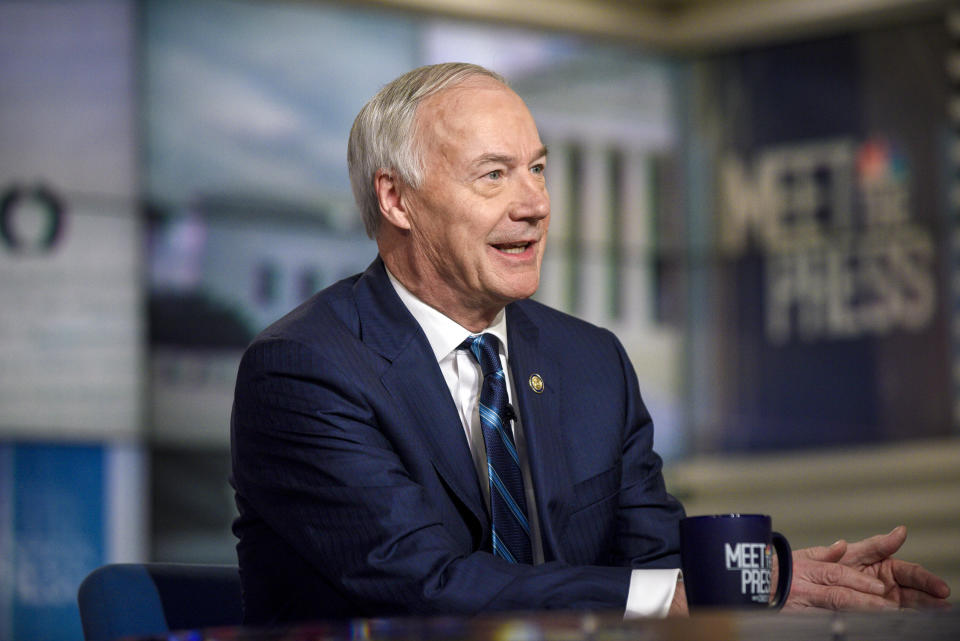In States Cutting Unemployment Benefits, Gig Workers Have The Most To Lose
Republican-led states are canceling the extra unemployment benefits Congress created because of the coronavirus pandemic, saying the extra $300 makes it impossible for businesses to find willing workers.
“The $300 federal supplement helped thousands of Arkansans make it through this tough time, so it served a good purpose,” Arkansas Gov. Asa Hutchinson said in a press release. “Now we need Arkansans back on the job so that we can get our economy back to full speed.”
But Arkansas and the eight other states that have said they’ll drop the federal benefits aren’t just dropping the $300. They’re also ending benefits for the long-term jobless and gig workers.
Roughly 3.7 million Americans receive regular state unemployment compensation, which varies by state but averages about $387 per week. In states cutting benefits, those workers would continue receiving that compensation, just without the extra $300 from the federal government.
But more than 4 million Americans received long-term benefits fully funded by the federal government last month, according to the most recent Labor Department figures, and 6 million received Pandemic Unemployment Assistance, the benefits for gig workers and others who hadn’t been laid off or furloughed from traditional payroll jobs.
Instead of simply taking away the $300, the states canceling benefits are saying they’ll cancel them all. That means gig workers and people out of work longer than the 26 weeks typically covered by states could be left with nothing when the cuts start taking effect next month.

“As Republican governors continue their economic sabotage by pulling the rug out from jobless workers, it’s important to note that thousands of workers in these states are not only losing the $300 weekly boost, they are losing every single penny of their income,” Sen. Ron Wyden (D-Ore.) said in a statement Tuesday.
If they wanted, states could kill the extra $300 but let live the other benefits, since Congress created the benefits as separate programs, with states paying each one based on an agreement with the U.S. Labor Department. A gig worker would revert to a smaller benefit just like someone on regular unemployment. But so far, no state has opted to cancel only the $300 and not also the other programs.
Wyden said the Labor Department “must explore all options to keep these workers from losing their income.”
The Biden administration might be able to preserve the gig benefits, at least according to the National Employment Law Project (NELP). In a letter to the Labor Department on Tuesday, the worker advocacy group said the Coronavirus Aid, Relief and Economic Security Act of 2020 gave the government no leeway on whether to provide the benefits, since the law’s text says the labor secretary “shall” pay the benefits to people who are eligible.
The NELP letter notes that the Labor Department said so itself last year in a response letter to the department’s inspector general. “The relevant language is not discretionary,” the letter said.
Either the federal government has to make states pay the gig benefits or it has to pay the benefits itself, according to NELP.
“Without exercising one of these options, or developing their own ability to take and pay claims, DOL will not only cause significant harm to our most vulnerable, it will be in direct violation of their duty to provide PUA benefits under the CARES Act,” the worker advocacy group said Tuesday.
A spokesperson for the Labor Department did not respond to a request for comment.
Related...
Wisconsin Business Owners Cite Child Care As Major Obstacle To Hiring
As GOP Pushback Mounts, Biden Says Jobless Need To Go Back To Work
More GOP-Run States Announce Cuts To Federal Unemployment Benefits
This article originally appeared on HuffPost and has been updated.

 Yahoo Finance
Yahoo Finance 